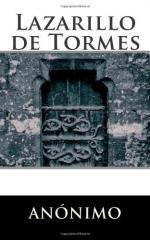|
This section contains 15,504 words (approx. 52 pages at 300 words per page) |

|
SOURCE: Maiorino, Giancarlo. “Picaresque Econopoetics: At the Watershed of Living Standards.” In The Picaresque: Tradition and Displacement, edited by Giancarlo Maiorino, pp. 1-39. Minneapolis: University of Minnesota Press, 1996.
In this essay, Maiorino applies the insights of New Historicist scholarship to the picaresque, focusing on Lazarillo de Tormes.
I
At the divide between the waning of feudalism and the birth of capitalism, orations on human dignity, praises of folly, seafaring discoveries, and mercantile adventurism set off outbursts of human ingenuity. Merchants in Florence and elsewhere, Jules Michelet wrote at an early stage of Renaissance criticism, upheld a religion that found “in gold its real presence and in letters of exchange its eucharist.”1 It was the “other” Renaissance of commercial pursuits that made ambitious individuals proud, powerful, and appreciative of the advantages wealth could bestow on lineage and society.
At the beginning of early modern Europe, the sociology of wealth...
|
This section contains 15,504 words (approx. 52 pages at 300 words per page) |

|


